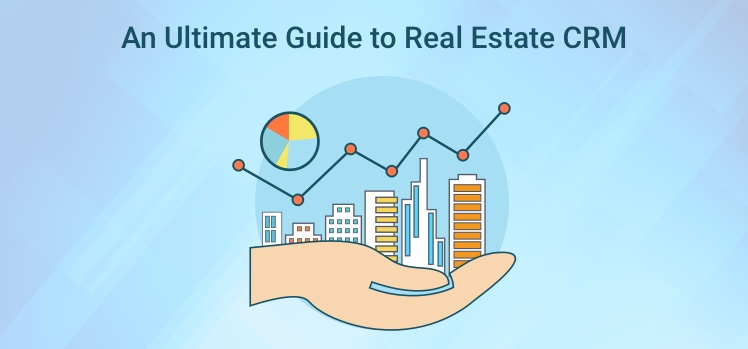An Ultimate Guide to Real Estate CRM
According to SoftwareAdvice.com, 53% of real estate agents surveyed were using spreadsheets, email, or notepads to manage customer relationships. This indicated that there was a lack of knowledge in the real estate field about how much customer relationship management (CRM) software could benefit them. This blog will clarify many reasons why a real estate CRM would benefit your agency.
What is a Real Estate CRM?
Any type of sales position is going to benefit from using a CRM. It’s the best way to keep information for all potential and existing customers in one place and organized with other information such as interactions, complaints, comments, things you want to remember, etc. For real estate agents, these reasons still ring true and are even more important for reasons such as keeping in mind the types of homes your buyers are looking for or the stipulations your sellers have on their property when selling and much, much more.
What are the Benefits of Using Real Estate CRM?
Using a real estate CRM can help agents with much of their day-to-day activities such as house showings, inspections, closings, payments, open houses, etc. This is made easier for you by taking the information input from the potential seller or buyer and automatically adding it into your CRM. Plus, it can help you keep track of who was contacted, who still needs to be, and you can schedule automatic follow-ups.
Effective real estate CRM software will also include a mobile version that would greatly benefit agents who are constantly on the go.
What Does Setting Up a New Client Look Like?
An effective real estate CRM will automatically add your new client when they sign up on your website ar a 3rd party website that goes to your listing. You would want to have customizable fields so you can collect information such as numbers of bedrooms and bathrooms, maximum price, type of dwelling, etc. This will allow you to segment your clients to better serve them when searching for properties.
This will set off a reminder to call them to follow up on their inquiry. Then the CRM should automatically alert you when properties that match what your clients are looking for pop up. Each time you contact them with a potential property match, it will be included in the CRM so you’ll have all of that information documented, including what they liked or didn’t like about the property.
A real estate CRM will then help you have all of the information in one place so you can quickly send in bids for interested buyers or receive and respond quickly for sellers. You can also add in dates such as the closing date so you won’t forget.
How to Choose the Best Real Estate CRM?
Finances Online explored several different ways for organizations to choose the right CRM for them, including choosing one based on:
- Technical Functions
- Daily operations
- Automation
- Analytical
- Campaign management
- Collaborative
- Social
- Crowdsourcing
- Priorities
- Manage contacts
- Increase sales
- Improve customer support
- Track and measure campaigns
- Business size
- Small or medium-sized
- Enterprise
These can also be kept in mind when determining your ideal real estate CRM. Other considerations include whether or not it is within your budget now and as your sales grow, if they offer any free versions or free trials, and if it integrates with other productivity apps that may benefit your agency.
Challenges Real Estate Professionals Might Face
Real estate agents might come across some challenges that are unique compared to other sales professionals and some that are similar but cause different problems. For instance, without a CRM, many sales professionals would suffer by not having the data they need in one centralized location. For a realtor, this can be problematic because one of your fellow agents may need to be present for part of the sales process while you are away, for instance. Plus, if there is duplication in any of the data, perhaps two agents from the same office will pursue the same lead. Plus, according to Mashvisor, building a database is one of the biggest challenges faced by real estate agents.
Real estate agents also suffer at times from what is considered a feast or famine career. Sometimes the housing market just isn’t as good as it is other times. A CRM can help with sales forecasting and analysis to determine when to put your commission into savings and which can be spent on a big purchase because there will be more where that came from.
Real estate agents tend to be more experienced and, thus, older than many first-time homebuyers who may be more tech-savvy. Incorporating a CRM that can help you integrate other digital means of communication is an excellent way to even the playing field.
A Final Word
Many professions can benefit from effective CRMs implemented in their businesses. However, real estate agents may just find that it is a game-changer for helping them keep consistent and timely communication with their clients.
Agile CRM is an all-in-one solution that would be able to help you with automating both your sales and your marketing processes. Plus, it is cloud-based and mobile-ready so your agents can input and access their information from anywhere.
If you are considering implementing a real estate CRM for your agency, take a look at some options available to you and give them a try, if you can. It’ll be the best way to determine if it will work for you and your fellow agents.
Give Agile CRM a try for free for your first 10 users and decide if it will work for your team.

No Comments